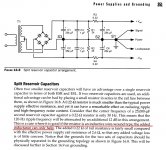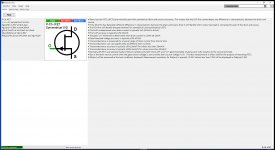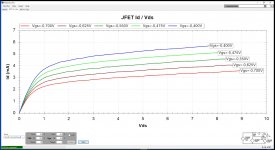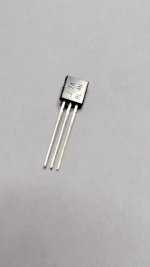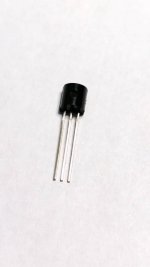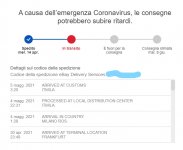I am returning to my noisy and distorting AJ with the attempt to find the reason.
Knowing nothing better, I am going to replace LSJ74 JFETs by BC556 just to see if the JFETs are at fault.
Zen Mod, as it was your suggestion, could you please comment if I can just put BC556 instead of LSJ74 without any other modifications? You have already mentioned that "sole programming resistor is what you need to change (up in value - put trimpot if you didn't already)". Did you mean the R7? I have a trimpot of 2K there. Is that good enough?
Thanks.
- Alvis
Knowing nothing better, I am going to replace LSJ74 JFETs by BC556 just to see if the JFETs are at fault.
Zen Mod, as it was your suggestion, could you please comment if I can just put BC556 instead of LSJ74 without any other modifications? You have already mentioned that "sole programming resistor is what you need to change (up in value - put trimpot if you didn't already)". Did you mean the R7? I have a trimpot of 2K there. Is that good enough?
Thanks.
- Alvis
you need trimpot in place of R8, to be able to set output DC offset
point of test is not bjt Aleph, just to confirm that rest of circuit is OK and that your input JFets are reason for troubles
point of test is not bjt Aleph, just to confirm that rest of circuit is OK and that your input JFets are reason for troubles
Thanks.
How big trimpot should I put there then?
Now I have fixed 1K resistor in R8.
To make shure what the test should be then:
Now, when listening with the headpones connected to the output, I hear quite loud hum/buzz (~100Hz), but also some higher pitched crackle/hissing. The FFT looks like attached. Output DC is fine now, very close to 0.
Can I expect that the noises on the output go away with BC556 (and then I know that JFETs are faulty), or should I only check if I am able to set output DC with BC556 but should not expect anything about the output (and there is no sense to try any FFT measuments with BC556)?
How big trimpot should I put there then?
Now I have fixed 1K resistor in R8.
To make shure what the test should be then:
Now, when listening with the headpones connected to the output, I hear quite loud hum/buzz (~100Hz), but also some higher pitched crackle/hissing. The FFT looks like attached. Output DC is fine now, very close to 0.
Can I expect that the noises on the output go away with BC556 (and then I know that JFETs are faulty), or should I only check if I am able to set output DC with BC556 but should not expect anything about the output (and there is no sense to try any FFT measuments with BC556)?
post #1 schematic
use 2K trimpot, pull out fixed 1K from same position
preset to 1K before powering up
grounded inputs, no load at output, as always
use 2K trimpot, pull out fixed 1K from same position
preset to 1K before powering up
grounded inputs, no load at output, as always
I don't have 2K trimpot on hands, will take a few days to source them.
Meanwhile, I desoldered 2 JFETs and checked them in that simple matching circuirt using 9V battery. I got 10.33 mA and 10.20 mA Idss.
I also checked them in the universal tester: both were properly recognized with parameters Id=0.64mA, @Vgs=448mV and Id=0.62mA, @Vgs=434mV. This universal tester is not sure about the pinout: it shows it correctly if stuffed one way, and mix-up D and S if stuffed the other way, but I guess it happens with these things.
Could it still be that these JFETs are faulty and are the source of my problems?
I also tried the HBR and desoldered the input wires from the board - same hum and higher tone crackling on the output.
-Alvis
Meanwhile, I desoldered 2 JFETs and checked them in that simple matching circuirt using 9V battery. I got 10.33 mA and 10.20 mA Idss.
I also checked them in the universal tester: both were properly recognized with parameters Id=0.64mA, @Vgs=448mV and Id=0.62mA, @Vgs=434mV. This universal tester is not sure about the pinout: it shows it correctly if stuffed one way, and mix-up D and S if stuffed the other way, but I guess it happens with these things.
Could it still be that these JFETs are faulty and are the source of my problems?
I also tried the HBR and desoldered the input wires from the board - same hum and higher tone crackling on the output.
-Alvis
no benefits of asking on the forum
only with parts replacement, when you get circuit without problem , you can point finger and say - it was this
it's easy when circuit is Dodo - easy to find what's gone
when problem is intermittent and , as in your case, crackling on output, no other way than described
only with parts replacement, when you get circuit without problem , you can point finger and say - it was this
it's easy when circuit is Dodo - easy to find what's gone
when problem is intermittent and , as in your case, crackling on output, no other way than described
Alvis,
While you are waiting for your trimpot to arrive...I would be curious to know if your hum problems go away if you were to wire the Aleph J for balanced input and use a decent balanced source, such as an Oppo Blu Ray player, etc...
Best,
Anand.
While you are waiting for your trimpot to arrive...I would be curious to know if your hum problems go away if you were to wire the Aleph J for balanced input and use a decent balanced source, such as an Oppo Blu Ray player, etc...
Best,
Anand.
Thanks, Zen Mod. In my yet short DIY journey, I've build a few amps and some other stuff: some of them from the kits, some sourcing the parts myself. Aleph J is the first one making me troubles. Actually, after all, I'm quite happy about that - this makes me learn the troubleshooting path. Never had trodden this path before.
So, changind the parts it will be!
P.S. I am also waiting for JFETs for Zen version of AJ: PCBs and everythig else are in the drawer already. So, perhaps the biggest change could be the PCB change 😀 So, I'm hurring to fix my current AJ, as if I replace them with these small little nice new PCBs - my learning path can come to the end 🙂
So, changind the parts it will be!
P.S. I am also waiting for JFETs for Zen version of AJ: PCBs and everythig else are in the drawer already. So, perhaps the biggest change could be the PCB change 😀 So, I'm hurring to fix my current AJ, as if I replace them with these small little nice new PCBs - my learning path can come to the end 🙂
@poseidonsvoice, I do not have a balanced source to try with. On the other hand, I desoldered the input from one of the boads entirely and still have the same hum+hiss/crackling in the output as on the other channel.
need informations
Hello,
i am a new subscriber and i intend to assemble an aleph j amplifier, i have a question for you, i have purchased 2SJ74-BL transistors. not having certain elements to be able to make a comparison, I relied on a test carried out with DCA Pro, these are the results, I wanted to know if you think they can be used.
Here are some pic of the tests performed out on one of them.
Hello,
i am a new subscriber and i intend to assemble an aleph j amplifier, i have a question for you, i have purchased 2SJ74-BL transistors. not having certain elements to be able to make a comparison, I relied on a test carried out with DCA Pro, these are the results, I wanted to know if you think they can be used.
Here are some pic of the tests performed out on one of them.
Attachments
Question for Chris and others - in your estimation what is the minimum VA trafo that should be used when doing dual mono supplies for the J? Absolutely love the one I build using many of Extreme_Bokys mods, but went compact and built it with a 500VA in a 3U 300mm case. Its dead quiet and awesome, but all these comments got me thinking....
tricksters,
If they are genuine 2SJ74BL then they will work fine. I suggest you do not match
base on the measurements from the DCA pro. There is a note about that on the
jfet matching page of the diyaudio store:
JFET matching information – diyAudio Store
Instead I would suggest you measure the Idss of your parts using the
simple voltage source (can be just a 9V battery) + resistor method mentioned on
the same page. You can then match based on those measurements.
If they are genuine 2SJ74BL then they will work fine. I suggest you do not match
base on the measurements from the DCA pro. There is a note about that on the
jfet matching page of the diyaudio store:
JFET matching information – diyAudio Store
Instead I would suggest you measure the Idss of your parts using the
simple voltage source (can be just a 9V battery) + resistor method mentioned on
the same page. You can then match based on those measurements.
Thanks for the reply Dennis
I bought them here:
2SJ74BL - 2SJ 74 - J74-BL Transistor P-FET - Ipertronica by AGS Electronics srl
I don't know if they are Toshiba original parts.
I bought them here:
2SJ74BL - 2SJ 74 - J74-BL Transistor P-FET - Ipertronica by AGS Electronics srl
I don't know if they are Toshiba original parts.
tricksters,
Sorry...I thought your original question was about the suitability of the DCA pro
for measurement and matching.
I looked at the data you posted and I'm afraid that part looks fake to me. The gfs
is too low. Also the pinchoff voltage looks too high. 🙁
Sorry...I thought your original question was about the suitability of the DCA pro
for measurement and matching.
I looked at the data you posted and I'm afraid that part looks fake to me. The gfs
is too low. Also the pinchoff voltage looks too high. 🙁
- Home
- Amplifiers
- Pass Labs
- Aleph J illustrated build guide
